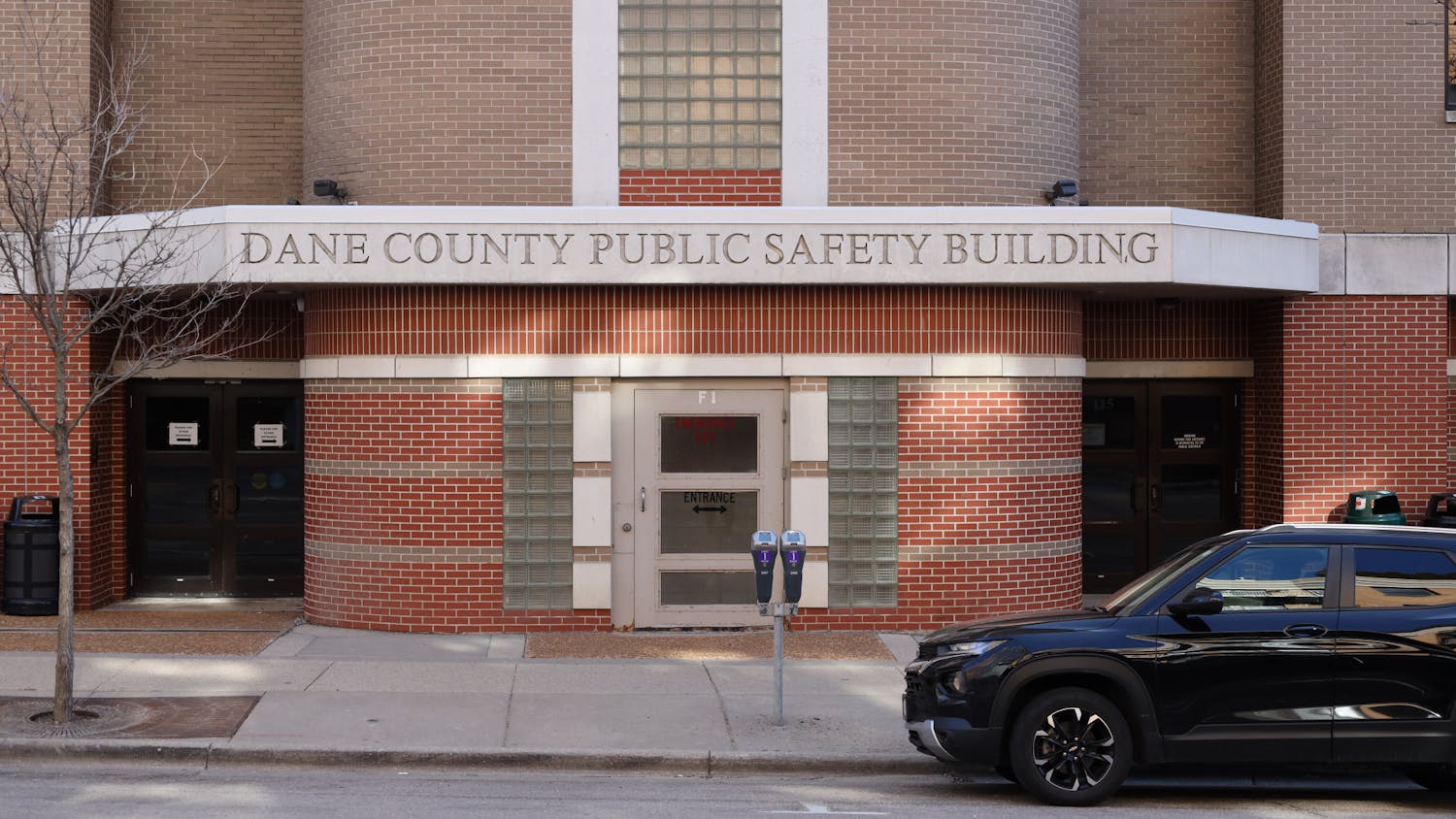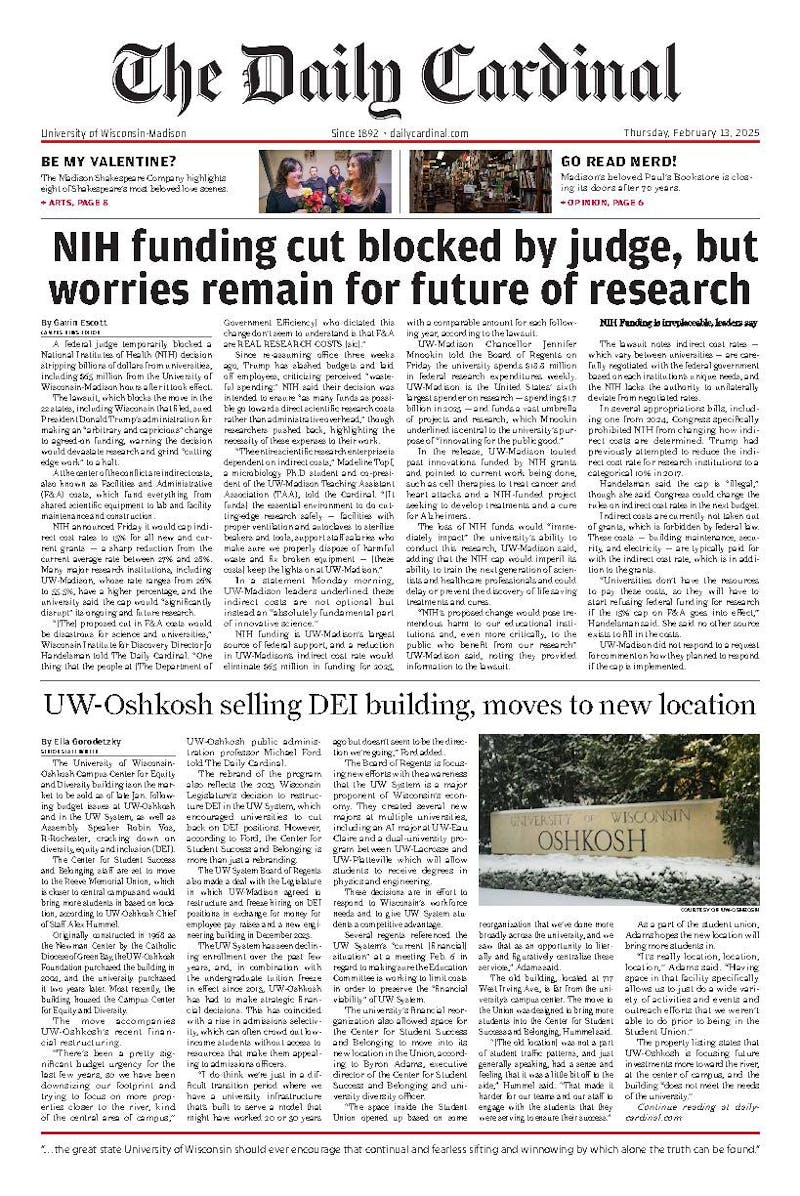From UW-Madison's fall in national rankings to the decrease in public funding it receives, Chancellor Biddy Martin has many complicated issues to tackle this school year. The Daily Cardinal recently spoke with Martin about the variety of challenges the university will face in the coming months.
International Relationships
Continuing work on the university's international connections, Martin will return to China in November to speak at the Beijing Forum, where world academic leaders address globalization issues. Martin will travel to Taiwan and Hong Kong for alumni meetings during the trip as well.
Martin said China is a prime location to create lasting professional relationships because of a large Chinese alumni base and the university's high rankings. UW-Madison maintains a strong position in the Shanghai Jiao Tong University Rankings, placing 17th out of 500 world universities for 2010.
""I thought it makes sense to go somewhere where the world is changing really quickly, where our students need to have contacts and also where the university is already highly regarded,"" she said.
Martin said she also hopes to widen the university's international reach to India, Brazil and sub-saharan Africa. Martin added she would like to extend some of UW's college programs, such as the agricultural and veterinary departments, to help benefit developing countries.
Rankings
Although the university may perform well in international rankings, in recent years UW-Madison has seen a drop in its national standing. The university dropped from 39th to 45th overall in the U.S. News and World Report rankings, and from 9th to 13th in public school rankings from 2009 to 2010.
However Martin does not believe the popular ranking publication gives an accurate portrayal of the university's performance compared with its public status.
""A lot of the measures for US News and World Report are proxies for wealth,"" Martin said. ""Without the kinds of endowments and funding per student that some of the privates have it is very hard to break into the top.""
Still, Martin remains unnerved but aware of potential consequences to recruitment.
""I'm of both minds: [the rankings] are bogus, and perception matters,"" she said.
Recruitment
The university's status was also questioned when local National Merit Scholar finalists did not chose UW-Madison. Martin said she was not surprised by these decisions, believing many Madison- -area students want to be further from home for college, and because UW-Madison does not actively recruit National Merit Scholars as other universities do.
However Martin would like to see more active recruitment of qualified students, saying the university is often known for its spirit and sports, when it should lead with academics. Martin would like to see a similar approach to the one football head coach Berry Alvarez took: That no great football player in the state of Wisconsin should go anywhere other than UW Madison.
Financial Aid
Martin said one problem with merit-based aid is that much is given through the individual colleges, rather than the university at large. She added there should be more merit-based aid for freshman, who often cannot qualify before they declare a major.
Along with an increase in merit-based aid, Martin hopes to increase need-based financial aid using the Madison Initiative for Undergraduates, which will raise tuition costs in small increments until 2013. The tuition increase began with the 2009-'10 school year, and will be used for need based financial aid and improvements in undergraduate programs this fall. This increase affects resident and non-resident students differently, raising tuition by $250 for residents and $750 for non-residents each year.
However, as with most tuition increases many students voiced displeasure with the initiative. An informal poll by the ASM Student Council in April 2009 found less than 20 percent of students supported the Initiative, while over 40 percent opposed it. But Martin is confident that with more need-based aid and a lack of public and private funding, the tuition increase is necessary for the university to retain its status.
""I think that the university can avoid becoming a high-tuition institution,"" she said, ""but I think the university needs to be able to be competitive with its peers.
""We need to get to the median of our Big Ten peers if we are going to keep the great faculty and the great students we have over time.""
State Government
With the university's rising tuition costs and substantial financial aid needs, Martin is working to ensure UW-Madison receives the funding it requires from the state. According to Martin, the relationship between the university and state is symbiotic, in that the university can aid the state's economic growth but requires funding from the state to do so.
""I wonder historically, if there has ever been a moment where there is such consensus that the state's economic woes require a great university system and a great research university that can create job,"" Martin said.
The UW Board of Regents recently asked for $83.6 million in general funds from the state to be used by the entire UW system.
The results of this November's gubernatorial election will largely play into the state's contributions to the university. Martin said all candidates view the university as a key to economic growth and will work with the next governor to maintain adequate funding.
""I'm hoping that all the candidates will focus on at least stable state funding, but also on giving at UW-Madison the forms of autonomy we need so that we can generate our own revenue and use it as we need to use it,"" she said.
Martin recognizes the importance of the relationship for both sides in the future.
""I think our primary responsibility right now is to be the sort of economic driver that the state clearly needs,"" Martin said. ""In order to do that the state needs to give us greater flexibility because we can help the state more than we're doing right now.""
Emma Roller and Ashley Davis contributed to this report.






